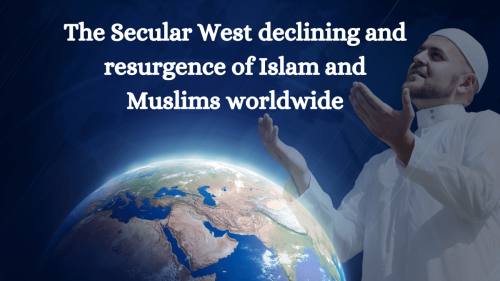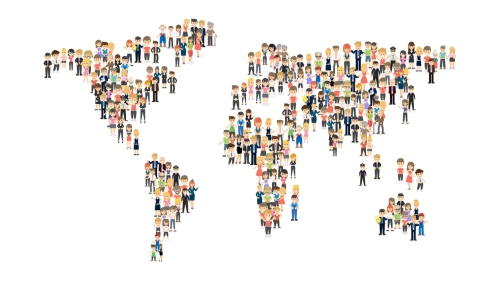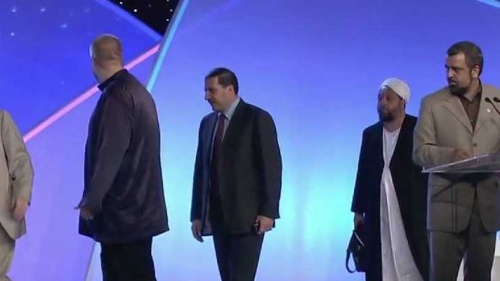Saving Secularism From Its Detractors
The 'Islamic State' debate is upon us once again. Just when we thought it was safe to read the newspapers, we are now confronted with the same dilemma that has been haunting this nation for the past two decades. The recent publication (and subsequent withdrawal) of the government-sponsored pamphlet that explains just how and why Malaysia should be thought of as an Islamic State, has left the public with more questions than answers. The public now waits with bated breath the publication of the follow-up pamphlet and PAS's blueprint for the Islamic state in Malaysia.
Yet in the midst of all this, few of us have dared to ask the obvious questions: Just when did we cross the threshold that has brought us to the current impasse? Just when did the issue of the Islamic state become part of mainstream political discourse in the country? And why is it that so many of us now accept this idea as a fait accompli, and no longer have any will to question or resist?
The problems are manifold and there are no easy solutions in sight. For millions of ordinary Muslims the world over, to even question the idea of an Islamic state is thought to be bordering on the heretical. This situation has been made worse by the Ulama, who have gained control over the discourse of political Islam and who continue to remind ordinary believers that they alone comprehend the message of Islam in its totality. The Ulama have succeeded in closing the minds of Muslims in general, and thanks to them and their fatwas, many Muslims no longer have the moral and intellectual courage to challenge their narrow interpretation of Islam. To interrogate the moral and political logic of the Islamic state, we are told, is to challenge the status of the Ulama and by default Islam itself.
Then there is the obvious politicization of the issue by practically every Muslim party and government in the Muslim world. As Muslim governments and opposition parties utilize the concept of the Islamic state in their war of words against each other, the hope to slow down the Islamization race recedes further and further beyond the horizon of possibility.
As the Islamization race gathers momentum, the first victim to this intra-Muslim struggle has been the concept of Secularism itself. For more than a century now, Muslims have been taught that Secularism is an evil invention of the West, designed to weaken the faith of Muslims and to diminish their will to struggle for a better future. Described as an infernal plot against Islam by its enemies, Secularism has been demonized to the point where it now stands as a counter-factual example of all that is un-Islamic.
Yet this understanding of Secularism is both caricatural and dangerous. For a start, it completely ignores the fact that Secularism is too big a concept to be reduced to such simplistic stereotypes. For in no way could Secularism be equated with crass materialism, hedonism and a purely sensate culture solely.
Secularism, it must be remembered, is a worldview that focuses on the here and now and the needs of the immediate present. This does not and need not mean that other dimensions of thought, belief and practice are to be forever relegated to an inferior, secondary register. All it says is that the worldly needs of the present are just as important in our struggle for daily existence. It arose as a reaction to an other-world outlook that belongs more to the medieval past where scientists and rational thinkers were burnt at the stake because they dared to think critically and desired to know more about the internal workings of the material universe around us.
Secularism also led to the cultivation of critical thought and skepticism, which paved the way for the intellectual revolution that freed us from our superstitions and taboos of the past. By doing so, it allowed us to base our faith and beliefs on firm convictions and not blind idolatry. This intellectual revolution not only gave added impetus to scientific and philosophical innovations, but also opened the way for radical changes in the socio-cultural and political order of the time. It was thanks- in part-to the changes brought about by Secularism that we came to understand and appreciate our status as freethinking rational individuals endowed with reason and will. This then opened the way for the creation of modern day democracies where the rights of all are equally respected and treated with the same degree of deference and esteem.
These were also the foundational principles upon which Malaysian democracy was built. While it cannot be said that the secular rationalist culture of the West has always kept it on the path of enlightenment and progress (two world wars were fought in Europe and the Scientific revolution did not prevent the emergence of the anti-humanist Fascist and Nazi regimes), it cannot be denied that the values of secular democracy remain cardinal values that guide many political movements and political projects in the West and elsewhere.
It would therefore be prudent to pay respect where it is due and to understand that Secularism is not necessarily the 'evil' thing that its detractors claim it to be. Flawed though it may be, the secular democratic culture that we have today has proven to be the best (and in many cases only) defense against the tyranny of majoritarianism and the rule of the over-zealous mob. While Islamists in predominantly Muslim countries like Malaysia claim that Islam is the only solution to the problems of the Muslim Ummah, we should remember that in every other country where Muslims are a minority (India, Europe and the United States), Secular Democracy- and not political Islam- has been the goal that they have been fighting for, for the simple reason that it is in a secular democracy that the rights of religious minorities are best protected.
End.












